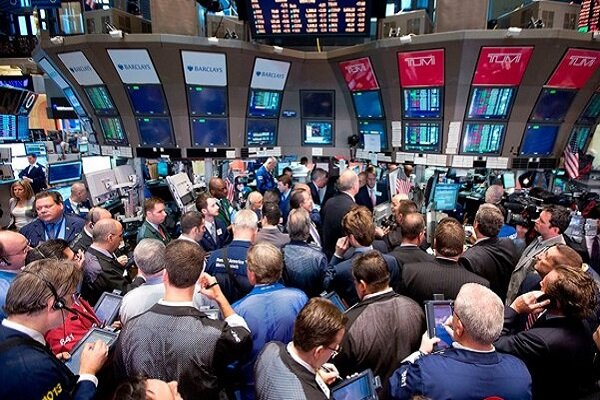The role of Trump’s tariffs in stock market decline and concern over the recession

reports
Definition of the economic downturn
According to Algeria’s report, the recession occurs when economic activity in a country is reduced significantly for a long time. This reduction can be found in areas such as corporate investment, household consumption, industrial production, employment and personal income.
In the United States, the official authority of the “Economic Cycle Determination Committee” is affiliated with the National Economic Research Office (NBR). The committee includes a group of prominent economists from universities such as Harvard and MIT, and by comprehensive study of economic data, it determines the start and end of the recession. Contrary to public notion, the devaluation of the stock market is not one of the official indicators to determine the recession.
What happens during the recession?
The recession is associated with unpleasant consequences. Reducing corporate investment is one of the consequences. Companies are refusing to invest in new investment because of concern about the economic future. For example, in the financial crisis 2, the collapse of the mortgage market stopped construction, which also spread to related industries such as building materials, home appliances and building equipment.
Unemployment is another consequence of the recession. Companies reduce their workforce. In the early 1980s, the unemployment rate in the United States rose to about 2 percent, and the rate rose to 5 % for a short time in the Kuwavid -2. Under the current situation, the unemployment rate is about 4.9 percent, but with the deterioration of the situation it may increase.
wages stagnation will be another definitive stagnation. Even people who do not lose their jobs are faced with a decline in wage growth or stagnation, as new job opportunities for bargaining are reduced.
wage reduction will reduce household consumption. Families refuse to buy unnecessary purchases for fear of unemployment or income reduction. This reduction in consumption leads to a decline in sales sales and thus further reduced investment and employment.
Does the stock market drop associated with stagnation?
Although the stock market drop alone is not a definite sign of stagnation, in many cases, these two phenomena have occurred simultaneously. Since year 4, the US has experienced ten official recessions, seven of which have declined the S&P 500 index. In the remaining three recessions, the stock market did not experience a significant decline.
In the recession with market decline, the average drop in the S&P 500 index was about 2 %, up 2 percent in the financial crisis. However, there is not always this connection; For example, in the fall of “Black Monday”, the market declined by 5 %, but there was no downturn.
The role of Trump tariffs in the market and worry about the recession
In April 1, Donald Trump puts new tariffs on imports from almost all countries. The decision caused a sharp drop in stock markets and worries about the recession. Some analysts, such as GPS, have estimated the likelihood of a stagnation of up to 5 %, while Goldman Morning Star have considered this possibility to be between 2 % and 5 %.
The important point is that such a recession can also be associated with inflation, as tariffs increase the price of imported goods. Under normal circumstances, the recession is associated with a decline in consumer demand and thus reduced prices. But if prices rise simultaneously due to tariffs, a phenomenon called “inflationary recession” or stagflation occurs; That is, the combination of recession and inflation, which is much more difficult than the usual recession.
Is this recession being universal?
Since Trump’s new tariffs cover almost all countries around the world, its effects may not be limited to the US economy and lead to a global recession. According to some economists, this may lead to a “world -class recession”, a situation that is at the same time in different countries.
Corona , If it happens, it is politically and is owned by the government. In fact, the cancellation of tariffs can some extent reduce its negative effects. Some economists believe that if this recession begins, it may end as quickly as it has begun.
The recession is a complex and multidimensional phenomenon that many factors contribute to its formation. Although the stock market decline can be alert, it does not mean the recession alone. Political decisions, including widespread tariffs, can cause recession by creating instability in the markets, a recession that may be associated with inflation and even global effects. Finally, depending on the reaction of governments and policymakers, the path of this crisis can change


